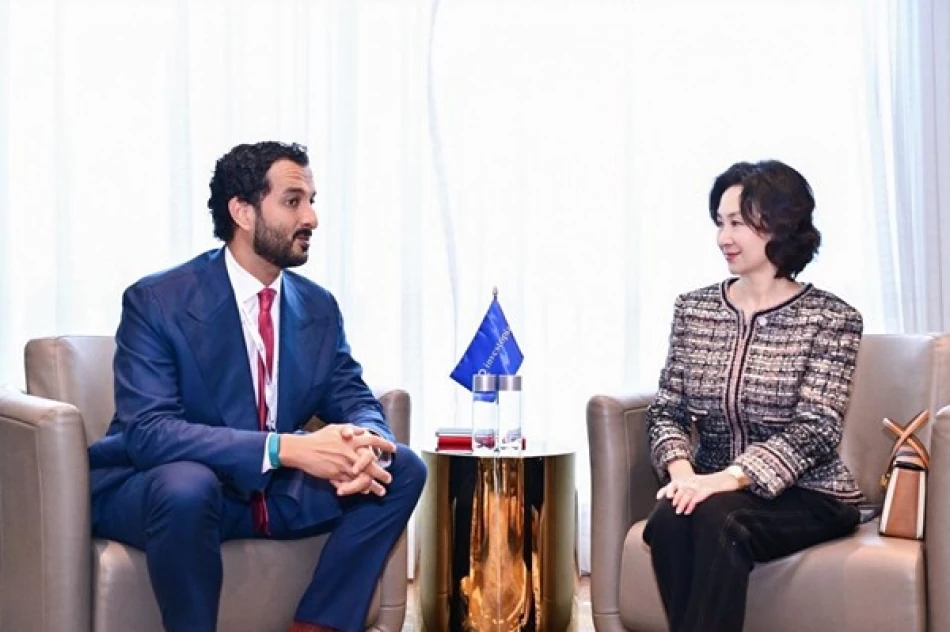
UAE Explores Strategies to Boost Chinese Investments in Diverse Sectors
UAE and China Forge Deeper Tourism Partnership as Emirates Targets $122 Billion Sector by 2031
The UAE is positioning itself as a global tourism powerhouse through an expanded partnership with China, leveraging the world's second-largest economy to fuel its ambitious National Tourism Strategy 2031. With plans to attract $27 billion in new tourism investments and accommodate 40 million hotel guests by the next decade, the Emirates is betting on Chinese capital and travelers to transform its hospitality landscape.
Strategic Alliance Takes Shape in Beijing
UAE Minister of Economy and Tourism Abdullah bin Touq Al Marri met with Wang Haimin, Chairman of China Tourism Group, during the Investopia-Beijing dialogue to outline concrete mechanisms for increasing Chinese investment in Emirati markets. The discussions, attended by Sheikha Nasser Al Nuaimi—the newly elected UN Tourism Secretary-General for 2026-2029—signal the UAE's intent to leverage international organizations in its tourism expansion.
The partnership focuses on hotels, resorts, shopping centers, and entertainment complexes, sectors where Chinese investors have demonstrated significant appetite globally. This mirrors China's Belt and Road Initiative investments in hospitality infrastructure across Southeast Asia and Africa, suggesting the UAE is positioning itself as a strategic hub for Chinese capital deployment in the Middle East.
Beyond Leisure: Targeting High-Value Tourism Segments
The bilateral cooperation extends into specialized tourism areas including medical tourism, cultural tourism, and business conferences—segments that typically generate higher per-visitor spending than traditional leisure travel. This strategic focus aligns with global trends where destinations compete for affluent travelers seeking premium experiences.
Sustainable Tourism as Competitive Advantage
Both nations emphasized sustainable and green tourism initiatives, reflecting growing consumer demand for environmentally conscious travel options. This positioning could prove crucial as international travelers increasingly factor sustainability into destination choices, particularly among younger Chinese tourists who represent a key growth demographic.
The Numbers Behind UAE's Tourism Ambition
The UAE's National Tourism Strategy 2031 sets aggressive targets that require substantial foreign investment and visitor growth:
• $122 billion contribution to GDP from tourism (450 billion dirhams)
• $27 billion in new investments (100 billion dirhams)
• 40 million hotel guests by 2031
These figures represent a significant scaling of the UAE's current tourism capacity, requiring not just Chinese investment but also the technological infrastructure to manage increased visitor volumes efficiently.
Technology Integration Drives Competitive Edge
Discussions with Pansy Ho, Deputy Chairman of the Global Tourism Economy Forum and Executive Chairman of Shun Tak Holdings, highlighted the critical role of artificial intelligence and digital transformation in creating unique tourist experiences. This technological focus positions the UAE ahead of regional competitors who may lack similar digital infrastructure investments.
Market Implications for Investors
The UAE-China tourism partnership presents opportunities across multiple sectors. Chinese hospitality giants like Jin Jiang International and Huazhu Group could expand their Middle Eastern presence, while UAE developers gain access to Chinese capital markets for large-scale projects. The emphasis on AI and digital transformation also creates openings for technology companies specializing in travel and hospitality solutions.
Regional Context and Global Competition
This partnership comes as Gulf states intensify competition for tourism dominance. Saudi Arabia's Vision 2030 similarly targets massive tourism growth, while Qatar leverages its World Cup infrastructure. The UAE's advantage lies in its established tourism ecosystem and strategic relationship with China, the world's largest outbound tourism market pre-pandemic.
The involvement of the incoming UN Tourism Secretary-General in these discussions suggests the UAE is building institutional support for its tourism strategy, potentially influencing global tourism standards and practices in ways that benefit its competitive position.
Most Viewed News

 Layla Al Mansoori
Layla Al Mansoori






